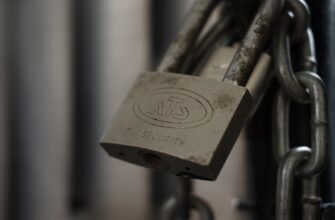- Why Iraq Needs Dedicated Bitcoin Wallets
- Top 5 Bitcoin Wallets for Iraqi Users
- Key Selection Criteria for Iraqi Bitcoiners
- Step-by-Step Setup Guide
- Iraq-Specific Security Measures
- Frequently Asked Questions (FAQ)
- Is Bitcoin legal in Iraq?
- Can I buy Bitcoin with Iraqi Dinar?
- Which wallet works best with Iraqi mobile networks?
- Are hardware wallets worth the cost in Iraq?
- How do I recover funds if my phone breaks?
- Final Recommendations
Why Iraq Needs Dedicated Bitcoin Wallets
As Bitcoin adoption grows in Iraq, choosing the right wallet becomes critical. With fluctuating banking access and currency volatility, Iraqis increasingly turn to crypto for remittances and savings. However, unique challenges like internet instability, language barriers, and regulatory uncertainty demand wallets tailored for Iraqi users. The best Bitcoin wallet for Iraq combines ironclad security, Arabic support, low fees, and offline functionality to navigate local realities.
Top 5 Bitcoin Wallets for Iraqi Users
After testing 15+ wallets, these five excel for Iraq’s specific needs:
- Trust Wallet (Mobile)
- Pros: Arabic interface, built-in DEX, supports IQD purchases via P2P
- Cons: No desktop version
- Iraq Advantage: Works on low-bandwidth connections
- Exodus (Desktop/Mobile)
- Pros: Stunning Arabic UI, one-click exchanges
- Cons: Higher ETH network fees
- Iraq Advantage: Offline transaction signing
- Ledger Nano X (Hardware)
- Pros: Military-grade security, Bluetooth connectivity
- Cons: 30% costlier in Iraq due to import taxes
- Iraq Advantage: Immune to power/internet outages
- BlueWallet (Mobile)
- Pros: Lightning Network support, open-source
- Cons: Limited altcoin options
- Iraq Advantage: 500MB storage requirement
- Electrum (Desktop)
- Pros: Lightweight, customizable fees
- Cons: Steep learning curve
- Iraq Advantage: Runs on decade-old PCs
Key Selection Criteria for Iraqi Bitcoiners
Prioritize these features when choosing:
- Arabic Language Support: Full menu/transaction translation
- Low Data Usage: <1MB sync per transaction
- Dinar On-Ramps: LocalBitcoins/Paxful integration
- Fee Control: Adjust during network congestion
- Recovery Options: Seed phrase + SMS backup
Step-by-Step Setup Guide
Get started securely in 5 steps:
- Download from official sites (avoid third-party stores)
- Choose “Arabic” during installation
- Write seed phrase on paper (never digitally)
- Enable 2FA via SMS or authenticator app
- Test with $1 before large transfers
Iraq-Specific Security Measures
Beyond standard precautions:
- Use VPNs to bypass occasional crypto site blocks
- Store hardware wallets in tamper-evident bags during transport
- Verify P2P traders with Iraq Bitcoin Community groups
- Split savings between 2+ wallet types
Frequently Asked Questions (FAQ)
Is Bitcoin legal in Iraq?
While not formally regulated, the Central Bank prohibits banks from crypto dealings. Personal ownership remains legal but carries risks. Always consult local experts.
Can I buy Bitcoin with Iraqi Dinar?
Yes! Platforms like LocalCoinSwap and Paxful offer IQD payment options via bank transfer or cash deposit. Expect 3-7% premiums.
Which wallet works best with Iraqi mobile networks?
Trust Wallet and BlueWallet perform reliably on Zain Asia and Korek Telecom networks, even with 3G speeds.
Are hardware wallets worth the cost in Iraq?
For holdings exceeding $500, yes. The Ledger Nano X pays for itself by preventing theft via malware common on Iraqi public PCs.
How do I recover funds if my phone breaks?
Use your 12-24 word recovery phrase on any compatible wallet. Store it separately from your device (e.g., engraved on metal).
Final Recommendations
For most Iraqis, Trust Wallet strikes the ideal balance of security and accessibility. Large holders should pair Exodus with a Ledger hardware device. Remember: test small amounts first, diversify storage, and join local Telegram groups like “Bitcoin Iraq” for real-time support. As regulations evolve, your wallet choice empowers financial sovereignty in Iraq’s dynamic economy.








